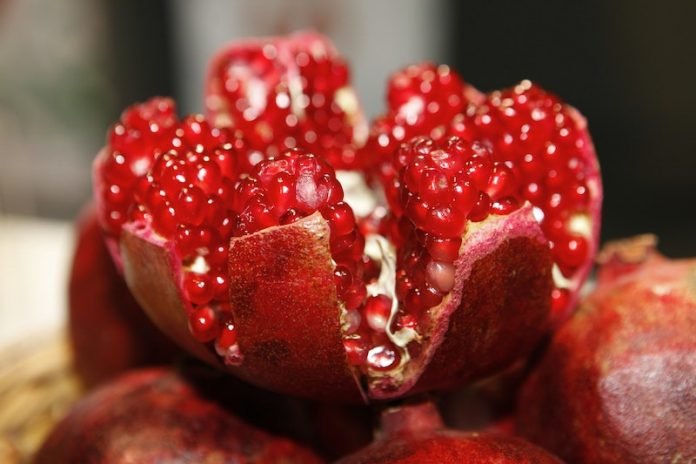
Pomegranates may be best known for the vibrantly colored juice they’re often used in, but these unique fruits have a lot more to offer.
Since biblical times, pomegranate fruit from the tree Punica granatum has been dubbed as the “nature’s power fruit.”
The tree itself is attributed to possessing extraordinary medicinal properties.
In a recent review study from the University of Wisconsin-Madison, scientists found that pomegranates could help reduce cancer growth.
The study is published in Nutrition and Cancer and was conducted by Vaqar Mustafa Adhami et al.
The pomegranate fruit is rich in antioxidant tannins and flavonoids.
Antioxidants are compounds that help protect the cells of your body from damage caused by free radicals.
This has recently drawn the attention of many researchers to study its exceptional healing qualities.
Recent research has found that pomegranate extracts selectively inhibit the growth of breast, prostate, colon, and lung cancer cells in culture.
In preclinical animal studies, eating pomegranate extract inhibited the growth of lung, skin, colon, and prostate tumors.
An initial clinical trial of pomegranate juice in people with prostate cancer reported a strong effect on cancer prevention.
In one study from the University of Wisconsin and published in PNAS, researchers examined the effects of pomegranate fruit extract on human prostate cancer cells.
The results showed a strong inhibition in tumor growth concomitant with a big decrease in prostate-specific antigen levels.
The team suggests that pomegranate juice may have cancer-chemopreventive as well as cancer-chemotherapeutic effects against prostate cancer in humans.
Sign up for our newsletter for more information about this topic.
If you care about cancer, please read studies that vitamin D could benefit men with advanced cancer, and new way to increase the longevity of cancer survivors.
For more information about cancer, please see recent studies about sweeteners linked to increased cancer risk, and results showing scientists find way to supercharge cancer-fighting T cells.



